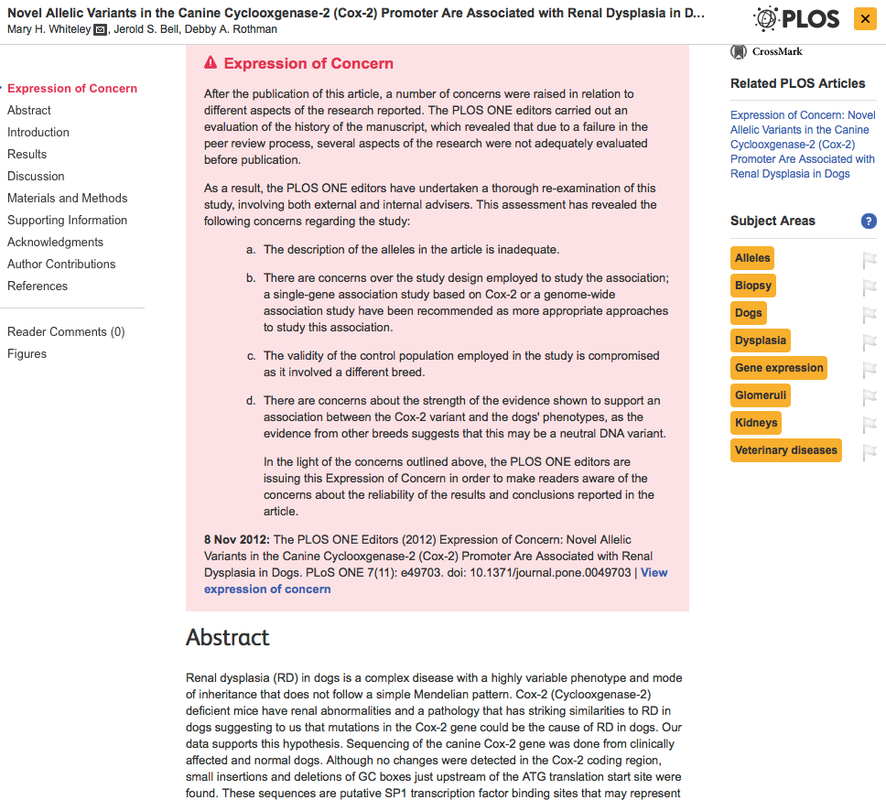Renal dysplasia is a serious and complex genetic disorder that occurs in many breeds of dogs. In 2011, a paper by Mary Whiteley and others was published in the respected journal PLoS ONE that claimed to have found a marker for the disorder (you can access that publication here). A DNA test was subsequently made available through Whiteley's company DOGenes.
After the publication of that study, serious concerns were raised about its validity. In 2012 the editors of the journal PLoS published an extraordinary "Expression of Concern" above the abstract of the online article, which I have reproduced below (and you can read here).
In short, the journal editors state that some issues of concern were not addressed during the peer review process, and that they undertook their own review of the study. From that, they concluded that the study was seriously flawed, and that the Cox-2 promotor suggested to be linked to the disorder was in fact a neutral DNA variant.
This is what they said:
"In light of the concerns outlined above, the PLoS ONE editors are issuing this Expression of Concern in order to make readers aware of the concerns about the reliability of the results and conclusions reported in the article."
Nevertheless, DOGenes continues to offer their DNA test based on that study and there is no mention on their site of actions of the journal editors.
The DOGenes test is NOT listed among available DNA tests on the website of the Orthopedic Foundation for Animals.
However, it continues to be listed in the University of Pennsylvania PennGen genetic testing database. In October 2014 I contacted PennGen and asked about this test. They told me that PennGen cannot be responsible for the validity of the DOGenes test, and that a more recent paper by the same author did not address the original concerns.
Whiteley MH. 2011. Novel allelic variants in the canine cyclooxgenase-2 (Cox-2) promoter are associated with renal dysplasia in dogs. PLoS ONE 6:e16684. (doi: 10.1371/journal.pone.0016684)


